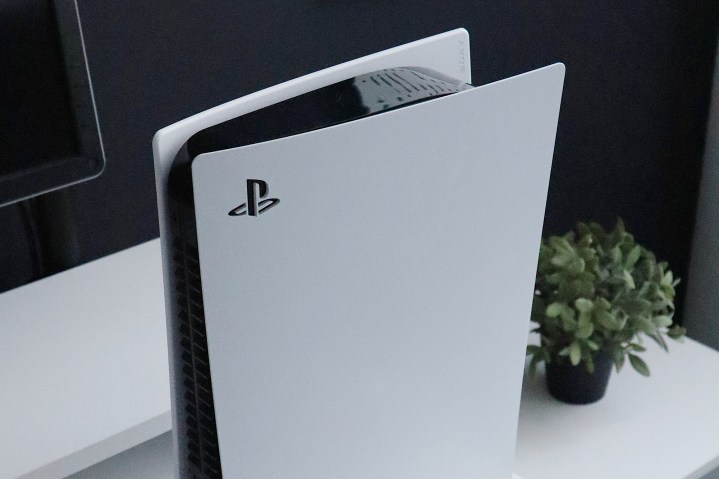Buying a game is easy. Keeping it is more difficult in 2022. Delisted games, closed digital storefronts, and shuttered online servers are major concerns in the digital ownership era. That unfortunate reality became clearer this summer following the announcement that Assassin’s Creed Liberation will be removed from Steam, along with news that the XCOM 2, Killzone: Mercenaries, and Killzone: Shadowfall servers will shut down in August 2022.
The modern era of video game ownership is complex, bringing as many pros as it does cons. While buying digitally is convenient and can be less expensive than purchasing physically, it also comes with a myriad of problems — especially when games are removed from digital storefronts altogether. Sometimes, players can lose access to certain games even if they already own them.
I use the word “own” loosely there. Even when buying physically, do we really own our games anymore? Since many games need to be connected to the internet to function, it means that online servers will inevitably close, rendering them unplayable to all.
To get a clearer picture of just how gamers feel about game ownership, I spoke with a wide variety of players about their buying habits. Although the responses were mixed, most gamers I spoke with share a disdain for the current landscape of media ownership. Even when players lean toward physical media, it doesn’t always matter if you have a disc or a cartridge.
Convenience and accessibility
Despite the issues that come with a digital ecosystem, it’s the preferred method for a major portion of players.
In fact, throughout the first quarter of 2022, 71% of the 70.5 million total games that Sony sold were bought digitally on PlayStation. That’s over 50 million games. While it can be tricky to account for literally every physical game sold, seeing that many digital purchases speaks volumes.
But why — even with all of the issues — do so many players opt to download their games instead?
I still prefer the convenience of digital ownership.
Andrew Stretch, TechRaptor senior content manager, tells Digital Trends he prefers buying digitally for a practical reason: It makes moving much easier. “I owned a massive collection of PS2 games, but every time I had to move, shifting my collection with me became harder and harder, especially as a lot of my moves were across continents [and] hemispheres,” Stretch tells Digital Trends.
Convenience is certainly a driving force for more players I spoke with, as players are able to instantly access games without having to wait for a shipment or go to a store. “I don’t have to go to the store and I don’t have to worry about [a game] being sold out,” gamer Joe Siemsen says in regard to the perks of getting games digitally. “It’s the norm on PC now, to the point that most modern PCs don’t even have disc drives.”
Another player I spoke to, Lawal Muhammad, cites having fewer “physical boxes” as another reason to prefer digital, along with such other benefits as “remote downloading, pre-downloading, and streaming to multiple devices from the cloud.”

Though most players I spoke with prefer buying physically, many of them said they’d purchase digitally if the price is right. “The cheaper a game is, the more likely I am to go digital,” Siemsen says. Digital games go on sale frequently, with some titles getting a 50% discount mere months after release. Whether they’re less expensive than their physical counterparts comes down to luck, but it’s clear a sizable portion of players prefer to simply download games rather than purchase a boxed copy.
Digital games are also beneficial in that they’re more accessible. “If a game I own physically becomes available on PS Plus, for example, Red Dead Redemption 2, I will use the digital version for one main reason: Accessibility,” Waqar, another gamer I spoke with, says. “As someone who has a physical disability, I have to ask a family member to put the disc in and they’re not always free, which is one of the benefits of digital. [With digital] I just need to switch on [the] console and jump straight in.”
It’s easy to see that digital games are far more accessible, as well as more appealing overall in many ways. While there’s a new modern standard for game releases, this approach creates problems when games get pulled from storefronts.
Inaccessible games and server closures
Entire games can become inaccessible due to being pulled from digital storefronts, which becomes a major issue when it happens to titles that were never available at retail in the first place.
Avery Feyrer, senior writer for TheGamer, says buying physically is often the “safer” choice. “I still have a general worry that something could happen and I lose everything, but I guess that’s a fear that I’ve just accepted,” he says in regard to buying games digitally. However, in the case of digital-only titles, players don’t even have another option, and as history has shown, many downloadable games are impossible to play today.
Dan Robitzski, writer and editor for The Scientist, points to Warcraft III as a game he completely lost access to after Blizzard pulled the plug on it. “I’m still bitter over how they mishandled Warcraft III,” he said. “[Blizzard] dropped support for the game altogether, and since now games launch from the Battle.net app, it’s impossible to play.”

But this sort of thing is just par for the course in the video game industry. One of the most famous examples is the removal of the Silent Hills demo P.T., which was delisted since the full game was canceled in 2014. The demo is still playable if it remains on your PS4 hard drive, but there’s no way to reacquire it once it’s deleted, and you can’t download it from the store anymore.
This type of thing also occurs frequently with games based on licensed franchises, as licenses are only available for a limited time. Many players I spoke with mentioned the removal of 2010’s Scott Pilgrim vs. the World: The Game, which was delisted after just four years. The demand to play it was so high, however, that it prompted the 2021 release of the Complete Edition, a remaster of the original game, which allows players to experience it with some enhancements.
But not all games get the same treatment. In 2019, many Activision-published licensed games such as Marvel Ultimate Alliance, The Amazing Spider-Man, Spider-Man: Shattered Dimensions, and Deadpool, were delisted from digital storefronts without notice. Now, the only way to get your hands on these games is to buy them physically, which has become increasingly expensive. For instance, a physical copy of Spider-Man: Shattered Dimensions for PS3 goes for upwards of $80 on eBay, with a sealed copy listed for $175.
This issue is exacerbated for owners of a digital-only PS5 or the Xbox Series S system, as they can’t even make use of any games that are now only acquirable via disc, such as the Deadpool game.
Ownership gets tricky when you buy digitally, but regardless of how you get your games, online server closures are frowned upon. Server closures impact all players, even those who purchase physical copies.
“A couple of MMOs I grew up with over the years — namely Marvel Super Hero Squad Online and Toontown Online — were shut down, rendering all forms of playability inaccessible and making any purchases I made on them null and void,” gamer Edwards tells Digital Trends. These online-focused games are lost to time as developers move on to other projects, or simply don’t have enough of a player base to justify keeping servers up and running.
The kicker is that even if you buy physically, you aren’t necessarily safe from the problems that come with media ownership. That’s because many games are technically available “physically,” but don’t actually include a physical disc/cartridge anymore. Countless Switch games are available at retail, but only give you access to a download code with no cartridge, such as Wolfenstein II: The New Colossus and Worms Rumble.
Halo Infinite, on the other hand, does include a disc at retail, but there isn’t anything on it. You’re simply given access to a download key for the digital version. The days of having everything you need when buying a physical copy are dwindling.
An inevitable demise
Ryan Brown, head of public relations for Super Rare Games, thinks digital ownership will only get worse. “I fear we’re really at the cusp of this issue, as the first digital storefronts are set to close in the coming months and years. You can still buy games on the PS3 for now, for example, but unlikely for much longer, and the process is already quite tricky.”
In 2021, the PS3 and PS Vita digital stores were supposed to close, but after tremendous backlash from players and developers, Sony reversed its plans. Still, it’s inevitable that those storefronts will eventually be no longer accessible, just like the Wii U and 3DS eShops, which will close in May 2023, making it impossible to buy digital games for those platforms.

Another problematic aspect of digital games is that they’re usually tied to an account. This means you can’t access those games on a different account, and if you get locked out, those titles are lost forever. According to players, Nintendo used to be particularly annoying in this regard, as an account was tethered to a 3DS and Wii U system (unless you called customer support). Now, players can easily transfer a primary account across multiple Switch systems, but this was not the case during the previous generation.
“I remember when buying my second Wii U, there was no proper way to unlink your account from the previous system so I needed [to speak with] Nintendo support to move [my] digital games to the new system,” Stretch says. Having to contact customer support to migrate an account to a different system was a barrier that likely caused a huge portion of players to lose their 3DS and Wii U games. Nintendo isn’t the only company players have had issues with, as other platforms make it tricky to recover lost accounts at times.
It’s clear that game preservation is in a tricky spot in 2022, but solutions aren’t easy to come by. Want to download a licensed game? It might be delisted. Want to download a Wii U or 3DS games? You better hurry, because the eShop will close next year. That physical copy of Battleborn? It’s unplayable.
With the ubiquity of digital games and ecosystems, it’s inevitable that many of our purchases will be lost eventually, and that buying physically is more of a temporary solution in many cases.



